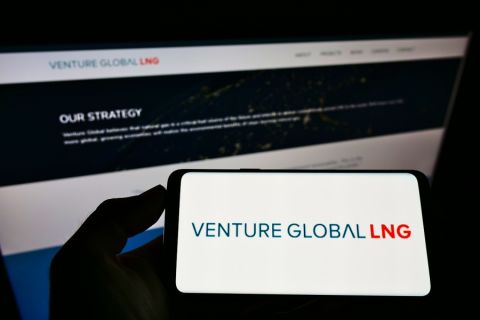Utilizing skills from two very different industries, Stuart Carter applies his experience in the real estate industry to his work every day in the midstream industry. First and foremost, he explains, interpersonal relationships are vital, as is the flexibility to try new roles.
Carter graduated from the Rawls College of Business at Texas Tech University in 2001 with a degree in finance with an emphasis in real estate. He entered the real estate field as an account manager for Homecomings Financial Network Inc., advancing to a personal loan consultant with Countrywide Home Loans Inc., and eventually moving to Las Vegas, Nevada, as an online sales manager for D.R. Horton Inc.
In 2009, Carter moved back to his hometown of Dallas, Texas, and entered the energy industry with Texas Energy Management Corp., a natural gas services business. Carter is currently heading up the business development department of both Texas Energy Management and Texas Energy Midstream LP, another affiliated company specializing in natural gas midstream opportunities.
Carter manages several existing midstream assets of Texas Energy Midstream; a natural gas- gathering, compression and dehydration system in Mansfield, Texas; and a natural gas transmission pipeline in Commerce, Texas, that supplies gas to a large aluminum smelter.
Carter spoke with Midstream Business about the growth of the company and future projects for Texas Energy Midstream.

“I was told a long time ago that we were given two ears and one mouth, so you need to do twice as much listening as you do talking.” – Stuart Carter, business development, Texas Energy Management Corp.
MIDSTREAM: What changed your focus from real estate to energy?
CARTER: When I moved back to Dallas, I spoke to several people about real estate opportunities, but I wanted to look at different avenues as well. I spoke with a gentleman who told me that I should speak to his partner and consider the oil and the gas industry. After a few dinners, I decided that this industry was the right direction I should take. The energy field is very dynamic, and holds great opportunities for the future. I quickly realized that energy is everywhere you look and involved in almost anything you do.
MIDSTREAM: How is it different?
CARTER Working for a small company, you wear a lot of different hats, and you need to perform well at all of those functions. It could be anything from talking to a producer, to issuing contracts, or going out in the field. You have to be able to adjust and adapt. Sometimes I am asked to juggle many roles, and I’ve got to be able to handle all of those roles well in order to succeed. I can be running financial analysis, going out to the field, talking to producers, talking to guys trying to sell an asset, or talking to guys who may be interested in purchasing one of our assets. In all of these capacities, I adjust and learn as I go.
MIDSTREAM: Are the Barnett opportunities growing?
CARTER: Yes. Prior to the Barnett shale really growing rapidly, most midstream companies and midstream assets were out in very rural areas. For us to be in an area like we are, within the city limits, having a sound-proofed building, compression and everything that goes along with it, has been extremely exciting. In fact, as of right now, we are actively seeking any new shale play asset, be it grassroots or currently existing infrastructure. We are looking at a few acquisitions right now, trying to build a larger portfolio. Being in business development, I keep my ear to the ground because there are so many different opportunities. It can be fun to see how quick the industry moves. One day, there is something that you could possibly move on, the next day it could be gone. It’s interesting, because every deal is different.
MIDSTREAM: Is the deal flow a challenge?
CARTER: Sometimes. I was told a long time ago that we were given two ears and one mouth, so I need to do twice as much listening as talking. This is especially true being new in business development. The most challenging thing is finding the right fit. I look at quite a few deals per year to see which ones fit our corporate objectives. Sometimes the economics are there and sometimes they aren’t. So much is going on right now that the challenge becomes finding and acting on the opportunities out there before they are gone.
MIDSTREAM: What kinds of new opportunities?
CARTER: I was at dinner with a few business acquaintances recently and found out that an asset in one of their companies was for sale, which surprised me. You never know when you will run into something new. As for the industry, with prices where they are right now, there are many companies drilling in liquid-rich plays and a considerable amount of infrastructure needed. Our company’s primary focus rests in natural gas, and working on liquids-rich plays. Gathering, processing and compression—that’s what we do. Also, the Eagle Ford shale is extremely active right now. Along with that play, we’ve looked at several other opportunities in the area. I think there is a lot on the table right now.
Recommended Reading
Utah’s Ute Tribe Demands FTC Allow XCL-Altamont Deal
2024-04-24 - More than 90% of the Utah Ute tribe’s income is from energy development on its 4.5-million-acre reservation and the tribe says XCL Resources’ bid to buy Altamont Energy shouldn’t be blocked.
Mexico Presidential Hopeful Sheinbaum Emphasizes Energy Sovereignty
2024-04-24 - Claudia Sheinbaum, vying to becoming Mexico’s next president this summer, says she isn’t in favor of an absolute privatization of the energy sector but she isn’t against private investments either.
Venture Global Gets FERC Nod to Process Gas for LNG
2024-04-23 - Venture Global’s massive export terminal will change natural gas flows across the Gulf of Mexico but its Plaquemines LNG export terminal may still be years away from delivering LNG to long-term customers.
US EPA Expected to Drop Hydrogen from Power Plant Rule, Sources Say
2024-04-22 - The move reflects skepticism within the U.S. government that the technology will develop quickly enough to become a significant tool to decarbonize the electricity industry.
Exclusive: ‘Regulatory Tsunami’ a Top Priority for American Producers, Says AXPC’s Bradbury
2024-04-22 - Regulatory considerations have significant implications for how oil and gas companies evaluate risk, and it’s a top priority for American energy producers right now, said American Exploration & Production Council CEO Anne Bradbury at CERAWeek by S&P Global.




